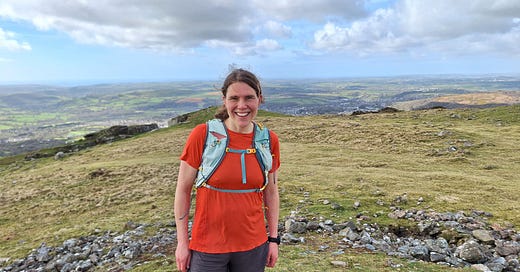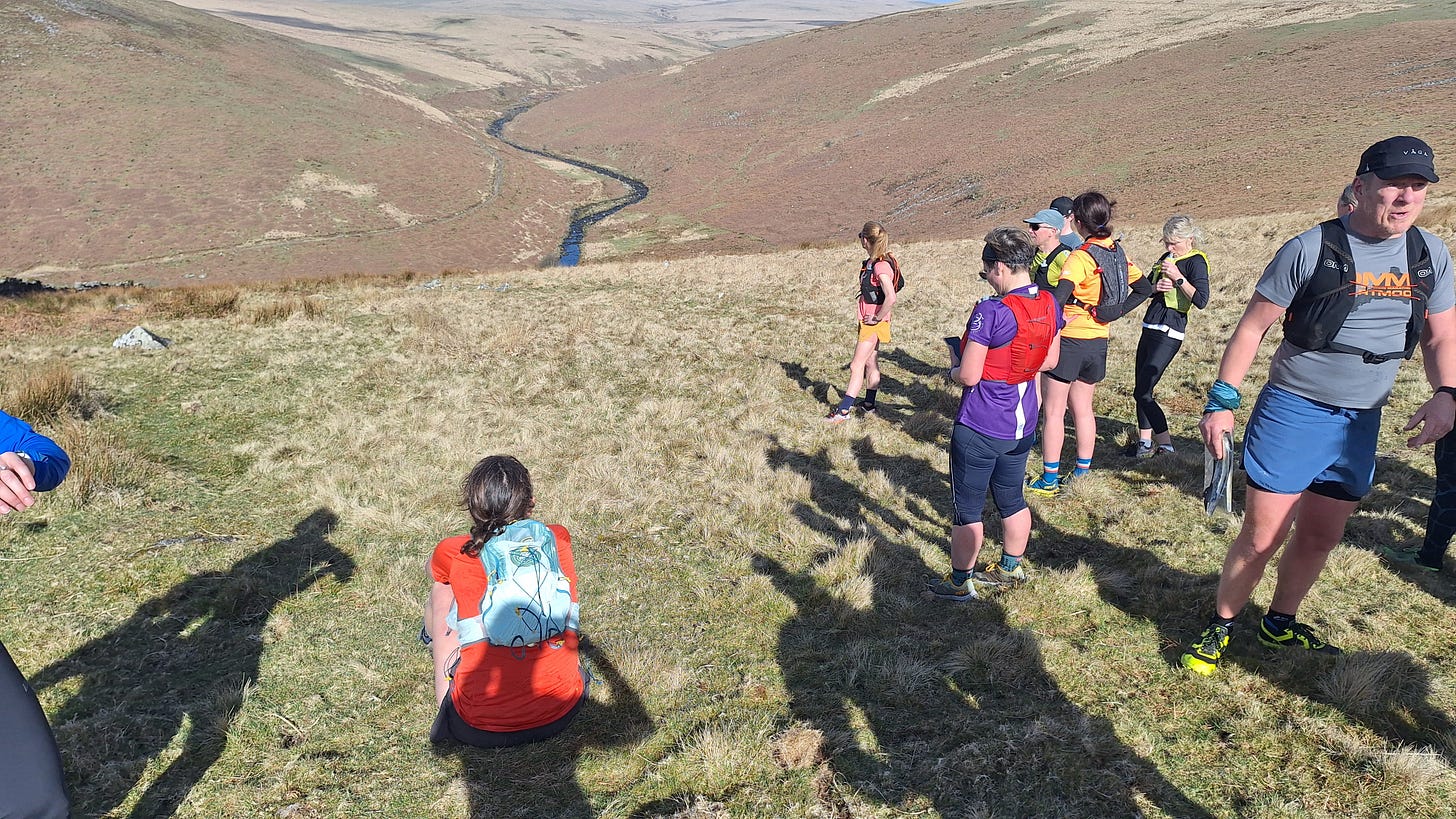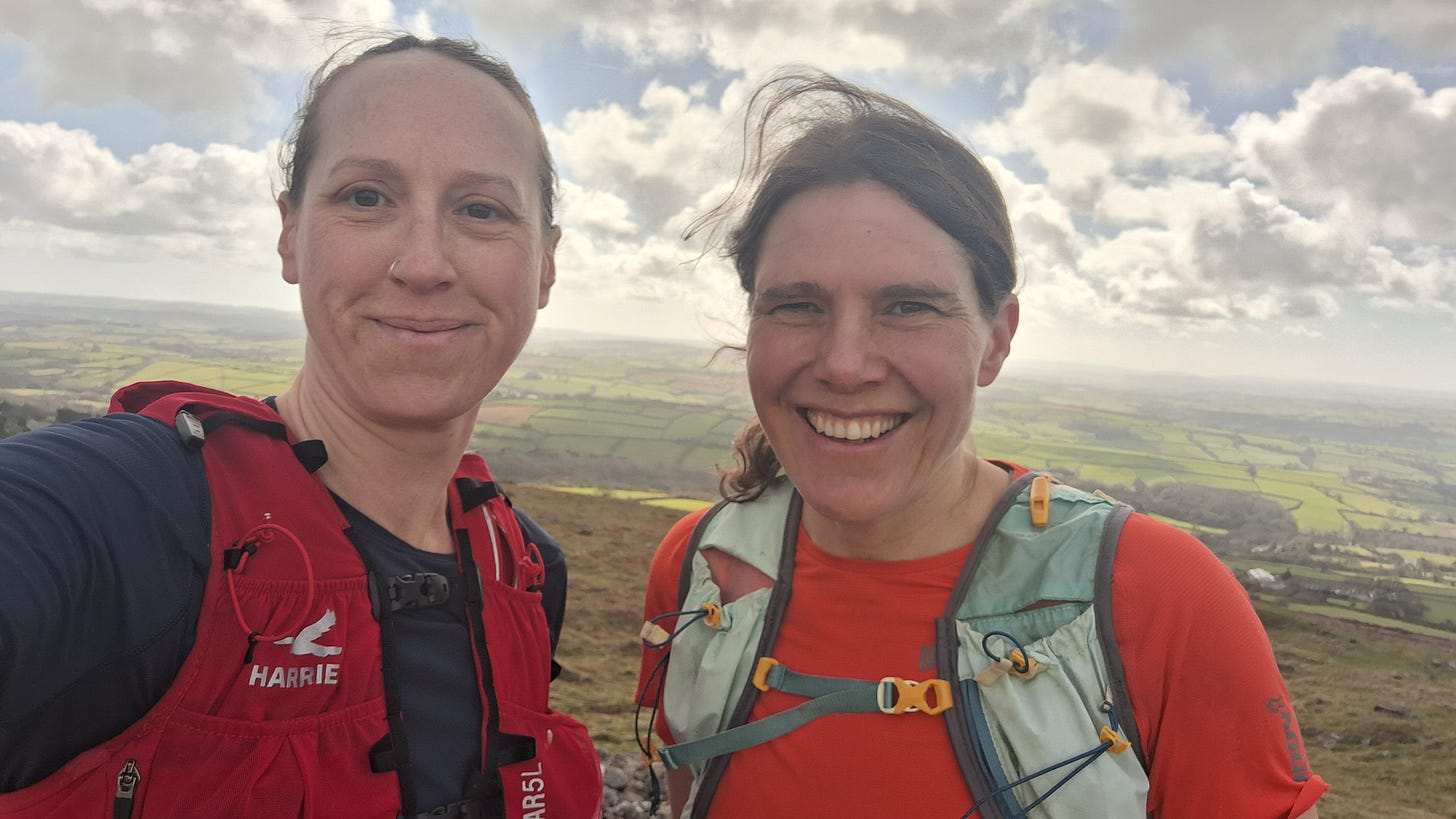Jasmin Paris on the Barkley Marathon, finding fame and what's next
And I take a little break in Scotland
As you read this I’m homebound from Scotland. I’ve spent the past three days scrambling over Munros with a very heavy backpack. Hopefully I’ve completed the Beyond the Ultimate 125km ultra and survived the rain / snow / heatwave (delete as appropriate).
I’m actually writing this ahead of the trip, knowing that I won’t be able to post next week. A race debrief will follow in a few week’s time but for now I wanted to share an interview I did with Jasmin Paris. I managed to catch up with her between runs at The Way of the Runner retreat in Dartmoor when I was training for the Highlands race.
It’s a lovely weekend, and this particular iteration was packed with women all eager to learn from the best.
Fortunately Jasmin was incredibly generous with her time and over a cup of tea we chatted about the Barkley Marathons, The Green Runners, being spotted on the Tube and much more.
You’ve said finishing the Barkley Marathons was deeply personal. What did it give you?
It changed me - not outwardly, necessarily, but internally. That race cost me more than anything else I’ve ever done. I was running almost entirely on adrenaline for the last loop, eating barely anything, moving on sheer willpower. But what I came home with was this lasting sense of self-belief. For months afterwards I’d be cycling to work, music playing, and suddenly remember: I did it. It was like this wave of warmth washing over me. The Barkley was such a long, improbable goal - three years of dreaming - and to finish it left me with a sense of confidence I hadn’t had before.
After Barkley, do you feel pressure now - like people are waiting to see what you’ll do next?
Not really. I think I used to feel that pressure more, maybe ten years ago when I was becoming more known. Now, it's different. I wasn’t doing Barkley to prove anything to others - it was about proving something to myself, and maybe to show that a woman could finish it. But I’m not trying to top it. I’ll wait for the next thing to come along, something that grabs me and makes me want to push my limits again. Until then, I’m happy just being out in wild places.
Your fame has certainly grown - how has life changed since Barkley?
Day-to-day life is mostly the same, really. I still work full time, still have to deal with the washing and the chaos of family life. That grounds me. But yes, for a few months after Barkley the media attention was overwhelming - I had to juggle all of that myself, on top of everything else. I’m not great at saying no. These days I prioritise things that feel meaningful - like a school interview request from kids, rather than another podcast.
But yes, the recognition has ramped up. When I was asked to start the London Marathon, I was recognised on the Tube which was weird. And at the National Running Show this year, I had to have a team of security help me get to the train on time - I just couldn’t move through the crowd for all the selfie requests.
You’ve been outspoken about access to the outdoors. How important is that to you?
It’s huge. I live in Scotland, where we’re lucky to have better access rights. But I realise not everyone has that. I had a childhood full of wild places and I want that for others too - especially those who might not otherwise experience it. If we want to protect nature, people need to understand it, connect with it. That starts with access. So yes, the idea of land being closed off, privatised - it really worries me.
You’re heavily involved in the Green Runners. How can runners lead the way in protecting the environment?
Green Runners is about encouraging the running community to think about its impact. Runners are often really in tune with nature - we seek out green spaces even in cities - and so we’re in a good position to influence change. Whether that’s choosing kit that lasts, supporting races with sustainable policies, or pushing brands to do better, we have power as consumers. I love that running doesn’t need much - a pair of shoes, some old kit. It doesn’t need to be endless consumption.
You’ve previously mentioned being curious about backyard ultras - what’s the appeal?
It’s the mental side of them, really. Like Barkley, they’re about how far you can go, not how fast. There’s something fascinating about that. It’s not a beautiful mountain race - it’s loops, repetition - but somehow that brings you face-to-face with your own limits. That idea of outlasting rather than outrunning really interests me.
What about barriers for women in ultra running - are things improving?
Yes, there’s progress. At this retreat, for example, there are more women than men - that’s encouraging. But there’s still more to be done. Things like maternity deferrals, period products at races, proper changing facilities - these all help. And offering shorter distances alongside big events gives women a way in. Often women want to be well prepared before entering, so making it more accessible helps. We’re seeing more role models now too — people like Courtney Dauwalter and Katie Schide. That makes a big difference.
What does running mean to you?
Everything. For me, running and being in the hills is about joy. It’s vital for my mental health. Even if I couldn’t run in the future, just walking in wild places would be enough. That connection to nature, it’s the reason I do all of this.
The Way of the Runner holds several running retreats in Dartmoor and Chamonix throughout the year. Check out the full schedule at https://thewayoftherunner.com/
Thanks for reading this week’s newsletter. If you have any running news for me, let me know! Send feedback to lilycanter@yahoo.co.uk or suggest topics you’d like me to cover.








I get chills every time I hear or read about her story. Amazing athlete and person.